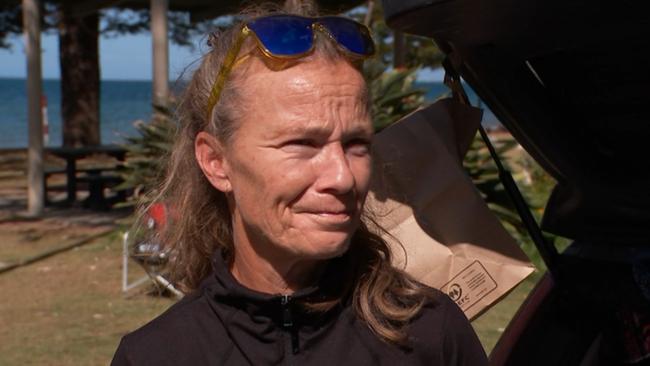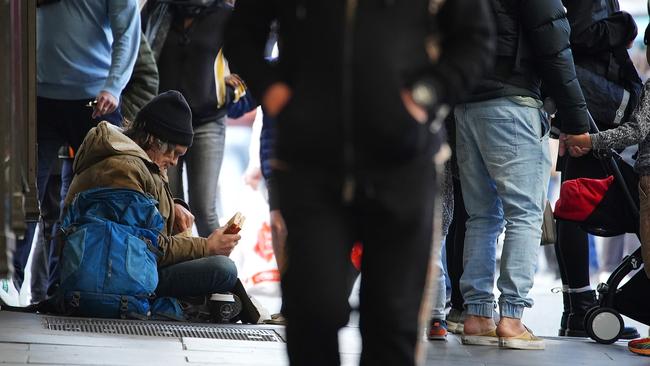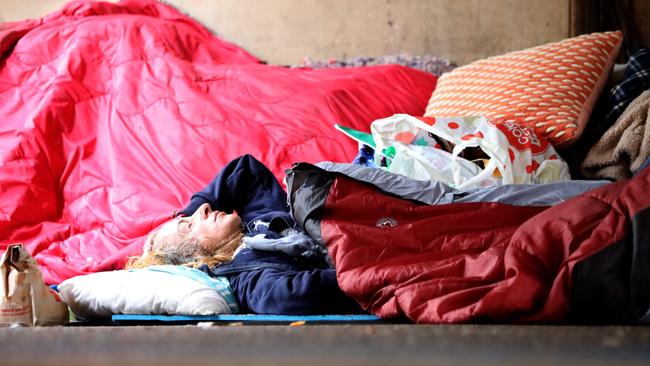Woman forced to live in car for two years shares details of her ‘extremely lonely’ life
A rent rise forced Wendy to move into her car – that was two and a half years ago, now she is sharing details of her “extremely lonely” life.

National
Don't miss out on the headlines from National. Followed categories will be added to My News.
A Queensland woman who has lived in her car for the past two and a half years has shared details of her “extremely lonely” life.
Wendy had spent seven years living in shared accommodation, paying at least $200 a week for a room. But when that cost increased, like most rents around the country, she was forced to find another shelter.
That is how the 52-year-old found herself living in her car.
“It’s intimidating when people are walking past and staring at you,” she told 7NEWS.com.au about the isolated living situation.
“You feel like an extreme oddball in this world.”

Wendy used to work in construction cleaning, even after moving into her car, but had to give it up after the situation became unsustainable.
“Transforming my car into a cleaning business was, as you can imagine, a bit unhygienic,” she said, also noting that the early starts and late finishes were a challenge.
She now relies on welfare payments to get by, which she says is “extremely hard” even when she is living off the “bare necessities”.
That said, Wendy still allows herself small luxuries: like a gym membership so she can shower, or buy the occasional “good coffee” or hot meal.
And if she cannot afford to make the membership payment, she exercises until she is warm enough to brave the cold public showers.
She is able to get fresh food once a fortnight at Encircle Redcliffe Neighbourhood Centre in Redcliffe, north of Brisbane – but it only keeps for three days in her car.
She also has a storage shed to help hold some of her belongings but that cost, like everything else, is also set to increase from $45 to $60 a week.
“I’m now going to even be pushed out of the storage,” she told 7NEWS.com.au.
And she is worried she will soon be kicked out of underground car parks, where she shelters in her car at night to escape the elements in the colder months.

Wendy is among the growing numbers of people experiencing homelessness and housing insecurity in Australia.
There were 122,494 people estimated to be experiencing homelessness at the time of the 2021 Census, an increase of 5.2 per cent (6067 people) from 2016, according to the Australian Bureau of Statistics.
The vast majority of the newly homeless were women – accounting for 81.7 per cent of the increase since the 2016 Census.
There are now 53,974 homeless women in Australia, an increase of 10.1 per cent (nearly 5000 people) from 2016. In comparison, the number of men experiencing homelessness in Australia increased by only 1.6 per cent.
Wendy told 7NEWS.com.au it feels like those in power have “turned a blind eye” to those in need who are struggling to afford the basics, saying the $40 extra Labor allocated to fortnightly welfare payments in its latest budget is “definitely” not enough.
“There’s no help out there for us. I’ve applied for housing and been denied,” she said.

Housing experts slammed the government for missing its chance to properly tackle the crisis of spiralling rents and real estate costs, calling it the “biggest cost of living crisis” facing Australians today.
Treasurer Jim Chalmers announced in his second budget that 1.1 million households will see their Commonwealth Rent Assistance boosted by 15 per cent.
Despite being the largest increase to the rent assistance in 30 years, experts do not expect it will cover projected rent increases, which have averaged 13 per cent for houses in the capitals, and 22 per cent for units in the year to March 2023.
More Coverage
Originally published as Woman forced to live in car for two years shares details of her ‘extremely lonely’ life




